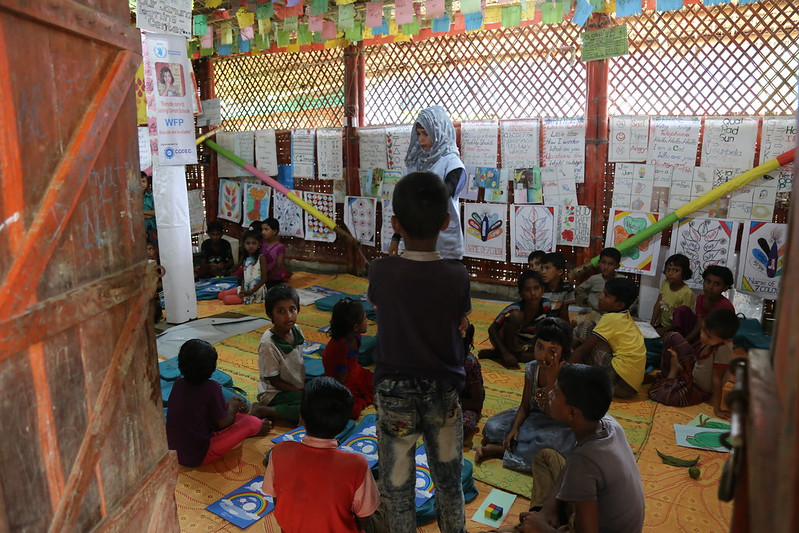
The frequency of humanitarian emergencies worldwide is on the rise, with indications that this trend will continue to escalate (UN OCHA, 2023). The impact of these emergencies on education is varied, and many have resulted in increasing numbers of children being denied their right to education, opportunities for mastering literacy and numeracy skills, and missing out on crucial well-being and support.
When emergency contexts such as those triggered by violent conflict, health hazards, natural disasters, or climate change occur, the restoration and continuity of education is crucial. It offers physical protection from the dangers and exploitation prevalent in crisis environments and plays a key role in contributing to the social, economic and political stability of societies. It also provides learners with the knowledge and skills necessary for their future livelihoods and reconstruction post-crisis. Education is often vital in conveying life-saving information related to health and safety and it mitigates the psychosocial impact of conflict and disasters by fostering a sense of routine, stability, structure and hope. Moreover, learning spaces also serve as entry points for essential services like protection, nutrition, water, sanitation and health. Thus, it is vital that education during emergencies and recovery periods is appropriate and relevant and is focused on teaching both basic literacy and numeracy and other relevant curricula that include socio-emotional learning and critical thinking, thereby building a culture of safety and resilience.
A recent scoping study working paper commissioned by GPE KIX summarizes key priorities related to children and youth who are out of school or at risk of dropping out in emergency contexts and countries impacted by fragility, conflict or violence. The primary focus is on the priorities identified by countries designated by GPE as partner countries affected by fragility and conflict (PCFC) in 2023.
The paper recognizes existing solutions within various themes related to education in emergencies and the significant growth in research on areas that include refugee education, girls’ education, socio-emotional learning, and tertiary education for conflict-affected populations. However, it also notes a striking absence of research on education and disaster risk reduction. Further research is required, most notably to support re-enrolling and retaining learners, teacher training and support for work with out-of-school and at-risk children, and the socio-emotional wellbeing of those children.
For more information, read the full working paper: Supporting children’s access and retention in education in emergency, fragile and conflict-affected contexts:GPE KIX scoping study working paper | GPEKIX
